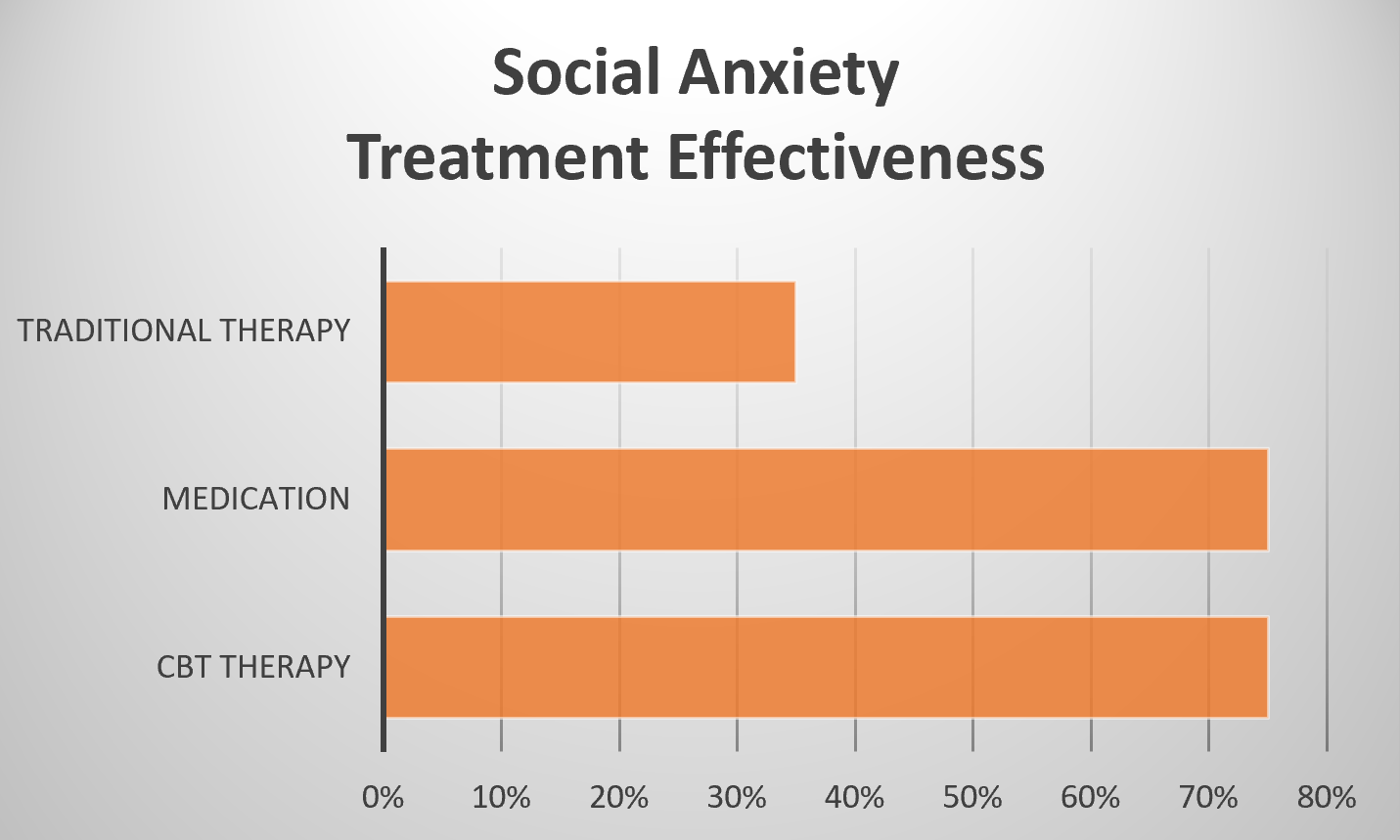Checking Out Various Strategies in Counselling for Anxiety Problem for Long-term Change
When dealing with anxiousness problems, it's necessary to check out a variety of therapy approaches. Each approach provides unique understandings and devices to aid you handle your signs properly. You might find that incorporating strategies can produce the most effective outcomes. Comprehending the nuances of these approaches is key to fostering long-term adjustment. Suppose the best mix could release a new degree of psychological health for you?
Recognizing Stress And Anxiety Disorders: A Quick Overview
Anxiousness disorders, which impact numerous people worldwide, can significantly influence everyday life. You might experience frustrating feelings of anxiety or stress that appear irrepressible. These sensations can lead to physical signs like an auto racing heart, sweating, or also wooziness. Typical kinds of anxiousness disorders include generalised stress and anxiety condition, panic condition, and social anxiousness problem. Each has one-of-a-kind indicators, yet they all share a tendency to disrupt your routine and relationships.Understanding the root triggers of your anxiousness is important. It could originate from genes, mind chemistry, or life experiences. Recognizing your triggers can aid you handle your actions much better. It's crucial to keep in mind that you're not alone in this struggle. Numerous individuals encounter comparable difficulties, and seeking help is a strong step towards sensation much better. By finding out regarding anxiousness conditions, you're already on the course to understanding and handling your problem extra properly.
Cognitive-Behavioral Treatment: Testing Unfavorable Thought Patterns

Identifying Adverse Thought Triggers
When you run into minutes of distress, identifying the certain triggers behind your adverse thoughts can be vital in handling anxiousness. Begin by taking notice of circumstances that provoke sensations of fear or concern. Is it a crowded area, an approaching deadline, or a discussion with particular individuals? Jot down these circumstances in a journal. This will certainly aid you recognize patterns in your reasoning. Notice physical experiences that accompany your negative thoughts, like a racing heart or rigidity in your upper body. By pinpointing these triggers, you gain understanding into what's sustaining your anxiousness. Recognizing these connections is the very first step in challenging those ideas and eventually regaining control over your psychological actions.

Changing Ideas With Positives
Testing adverse idea patterns is an essential action in transforming your attitude and reducing anxiety. You might typically discover yourself caught in cycles of self-doubt or catastrophic reasoning. Instead of letting these thoughts dictate your sensations, technique changing them with favorable affirmations or reasonable alternatives. When you assume, "I can not manage this," change it to, "I can manage challenges one step at a time." This simple change can considerably impact your emotional state. Regularly recognizing and responding to these adverse ideas aids produce a much healthier internal dialogue. Remember, it takes some time and effort, however consistently practicing this method can lead to enduring modification, encouraging you to encounter anxiety with restored self-confidence and resilience
Building Coping Strategies With Each Other
Replacing adverse ideas is only the beginning of taking care of anxiousness properly. To produce long-term change, you need to develop coping methods that encourage you. Cognitive-Behavioral Therapy (CBT) aids you determine and challenge those unhelpful thought patterns. With each other, you and your counselor can explore exactly how these thoughts effect your feelings and behaviors.Start by establishing sensible techniques, like journaling or mindfulness exercises, that permit you to challenge anxiety head-on. When you face your anxieties gradually, you'll discover to react in a different way.

Mindfulness and Acceptance-Based Approaches: Growing Present-Moment Awareness
As you browse the complexities of stress and anxiety, including mindfulness and acceptance-based methods can substantially boost your capability to grow present-moment understanding. By concentrating on the below and now, you'll locate that you can observe your ideas and sensations without judgment. This method assists you recognize your anxiousness without feeling overwhelmed by it.Engaging in mindfulness exercises, such as deep breathing, body scans, or assisted meditations, allows you to ground yourself in your existing experience. Acceptance-based approaches encourage you to welcome your emotions as opposed to battle versus them. When you accept your sensations, they lose their power over you.Incorporating these techniques right into your day-to-day regimen can transform just how you reply to stress and anxiety. You'll develop durability and discover to browse stressful situations with better ease. Eventually, cultivating present-moment awareness lays the foundation for lasting modification, equipping you to lead a much more fulfilling life.
Direct Exposure Treatment: Challenging Concerns Slowly
Exposure treatment assists you challenge your worries in a gradual way, making it less overwhelming. You'll discover strategies to encounter anxiety-provoking circumstances step by action, while also developing coping approaches to handle your responses. This approach empowers you to take control and decrease stress and anxiety over time.
Progressive Direct Exposure Methods
When encountering anxiousness, progressively facing your i loved this fears can be an effective method to reclaim control. This strategy, called steady exposure, involves gradually subjecting on your own to the circumstances or objects that activate your stress and anxiety. Beginning with much less daunting scenarios and slowly work your method up to more tough ones. If you're afraid of public speaking, you could begin by talking in front of a mirror, then advance to sharing ideas with a close friend, and at some point resolve a tiny group. Each step helps desensitize you to the fear, building your self-confidence with time. Remember, it's vital to rate yourself and celebrate small triumphes as you move with this process, enhancing your capability to manage anxiety successfully.
Building Coping Approaches
Building efficient coping strategies is crucial for handling stress and anxiety, especially as you face your fears progressively. One effective approach is exposure therapy, where you begin by facing your fears in a regulated fashion. Begin with much less daunting situations and gradually work your method approximately even more challenging circumstances. This steady exposure assists desensitize you to anxiety activates, making them less overwhelming.Incorporate leisure methods, such as deep breathing or mindfulness, to soothe your mind throughout exposure. Track your development, celebrating tiny victories along the way to boost your confidence. Keep in mind, it's fine to take your time; the objective isn't perfection yet steady renovation. By constructing these strategies, you'll empower on your own to browse stress and anxiety and accept life much more completely.
Psychodynamic Therapy: Revealing Source of Anxiousness
Psychodynamic treatment checks out the unconscious mind, exposing the origin of your stress and anxiety - Counseling services for anxiety. By analyzing your ideas, feelings, and previous experiences, this strategy helps you uncover underlying conflicts and unsolved issues that may add to your existing anxiety. You'll collaborate with a therapist to check out childhood years experiences, partnerships, and emotional patterns that form your feedbacks today.As you gain insight into these much deeper layers of your psyche, you'll start to acknowledge exactly how past events affect your present habits. This understanding can cause catharsis, permitting you to refine feelings you could have suppressed.Through the therapeutic relationship, you can also identify defense mechanisms that may have developed in time, using a more clear path to alter. Inevitably, psychodynamic therapy furnishes you with the devices to resolve your stress and anxiety at its core, promoting long-term transformation in your psychological health
Integrative and Alternative Methods: Integrating Techniques for Greater Efficacy
Incorporating numerous healing methods can improve your journey toward managing anxiousness more efficiently. By incorporating components from cognitive-behavioral therapy, mindfulness practices, and holistic approaches, you can develop a personalized approach that resolves your special demands. For example, you might make use of cognitive-behavioral strategies to challenge adverse idea patterns while integrating mindfulness exercises to ground on your own in the here and now moment.Additionally, exploring alternative methods such as yoga exercise or reflection can promote leisure and decrease anxiousness signs and symptoms. This blend allows you to develop better self-awareness and resilience.Experimenting with these diverse techniques can help you discover what reverberates most with you. Keep in mind, it has to do with discovering a harmony that a fantastic read works, as opposed to staying with a solitary method. This integrative approach not only uses immediate alleviation but likewise cultivates long-term skills for taking care of anxiety, encouraging you to reclaim control over your life.
The Function of Assistance Systems: Building Resilience With Connection
While it might seem that taking care of anxiety is a solitary trip, having a strong support group can play a necessary role in your resilience. Surrounding on your own with empathetic close friends, family, or support system produces a safe room where you can freely share your experiences and feelings. You advise on your own that you're not alone in this struggle.These connections offer inspiration and can give practical coping techniques that have worked for others when you link with others. It's likewise a possibility to gain point of view; good friends can aid you see scenarios in different ways, lowering sensations of isolation.Moreover, psychological support promotes a feeling of belonging, which can considerably ease anxiousness signs and symptoms. By leaning on your assistance system, you can develop resilience and take on obstacles extra properly. Bear in mind, reaching out for help suggests stamina, and it can make all the difference in your trip toward taking care of stress and anxiety.
Frequently Asked Questions
What Are the Common Signs And Symptoms of Stress And Anxiety Disorders?
You could experience uneasyness, tiredness, difficulty focusing, irritation, muscle stress, and sleep disruptions. Physical symptoms can consist of fast heart beat, sweating, and shivering. Acknowledging these indications early can assist you look for suitable assistance and treatment.

Exactly How Long Does Treatment Normally Last for Anxiousness Problems?
Therapy for stress and anxiety disorders typically lasts anywhere from a couple of weeks to several months. It truly depends on your specific needs, progress, and the methods your therapist uses to assist you handle your stress and anxiety effectively.
Can Medicine Be Utilized Together With Therapy for Anxiousness?
Yes, medicine can certainly be made use of alongside therapy for stress and anxiety. Combining both methods often improves therapy effectiveness, assisting you take care of symptoms while discovering underlying issues with therapy. Constantly consult your health care copyright for customized recommendations.
Are There Self-Help Approaches for Managing Anxiety?
Yes, there are a number of self-help approaches for taking care of anxiousness. You can practice mindfulness, engage in regular exercise, maintain a well balanced diet regimen, develop a regular, and utilize deep breathing techniques to help in reducing anxiousness signs and symptoms effectively.
How Do I Know if I Need Professional Aid for Anxiety?
You should consider seeking professional help for anxiousness if it disrupts every day life, triggers significant distress, or if self-help techniques aren't working. Count on your instincts; reaching out can lead to far better coping abilities and assistance. Typical types of anxiety conditions include generalized anxiety problem, panic problem, and social anxiousness condition. When you encounter minutes of distress, identifying the details triggers behind your unfavorable ideas can be crucial in taking care of Recommended Site stress and anxiety. Replacing negative ideas is only the start of taking care of stress and anxiety successfully. By examining your ideas, sensations, and past experiences, this technique assists you uncover underlying problems and unsettled issues that might add to your present anxiety. It's also a chance to gain viewpoint; friends can help you see scenarios in different ways, decreasing feelings of isolation (Counseling services for anxiety).Moreover, psychological support promotes a sense of belonging, which can substantially minimize anxiety signs